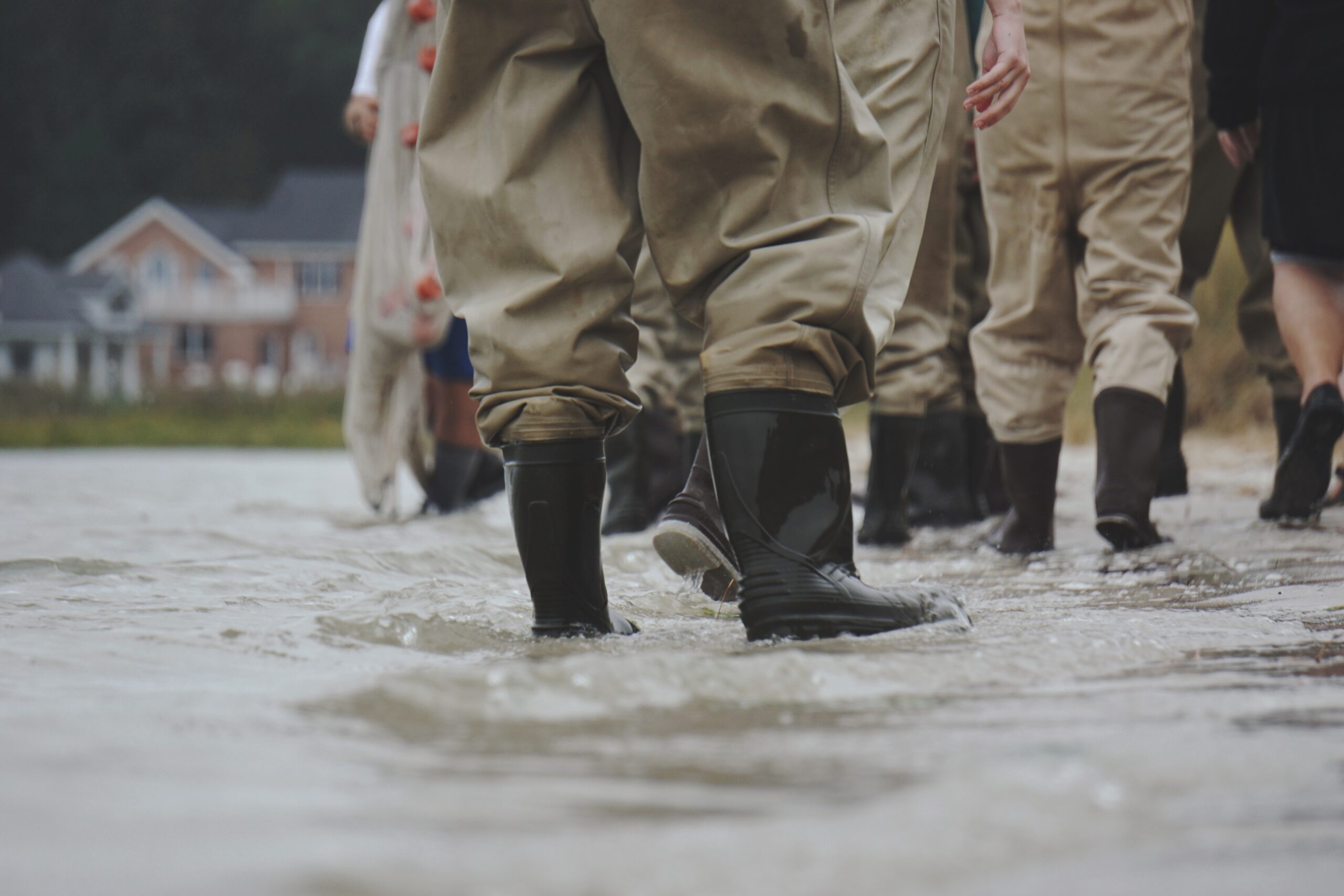We’re in the middle of the first storm of the season on the West Coast. As I write this I’m looking at a pile of industrial hairdryers that are going to be used to deal with our soggy office: a couple of blocked drains on a patio at the top of the building caused a pretty severe flood in the early hours of the morning.
I’m not qualified to suggest (and don’t intend to imply) that this particular storm is any worse than usual. The reality is that if we didn’t get flooded today, it would happen in a month or two when the winter storms blow through.
As the Water Remediation company (it’s what you look for in the Yellow Pages when your floor is too wet for a mop) plugs in the various dryers and dehumidifiers I’m seeing the miniature version of climate change disaster-response unfolding in front of my desk.
– There’s a lot of money being spent. Thankfully it’s our landlord’s insurance that pays for the cleanup and repairs. In the big world it is taxpayers and society that do it.
– We’re using a lot of energy. This kit is going to do bad things to our energy bill. It doesn’t matter how many CFLs we’ve installed and how conservative we were with the A/C this year, three days with the dryers and dehumidifiers running will dwarf those savings.
– There’s a tremendous loss of productivity around the office. As a company we’re well adapted to people working remotely, so I suppose it could be much worse. But bailing out patios with recycling bins isn’t going to get us funding a carbon reduction project at a dairy farm any quicker is it?
Simple and concise then: more expense, more energy and huge loss of productivity.
And all avoidable, if there was a little money spent earlier. Reminds me of something… I wonder what that could be…
Brought to you by terrapass.com
Featured image







